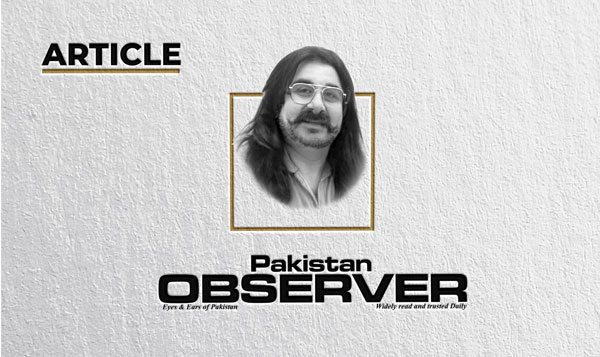The UNMOGIP and Kashmir
IN 1947-48 India approached (UNSC) to bring conflict in Kashmir to the notice of the Security Council members.
In January 1948, (UNSC) adopted Resolution 39 and established three -member (UNCIP) to investigate and mediate the dispute. In April 1948, by Resolution 47, UNCIP) was reconstituted as (UNMOGIP).
First Group of UN military observers arrived in mission area on 24 Jan 1948 to supervise the ceasefire between India and Pakistan in (IIOJK). The (UNMOGIP) deployed( UNMOs) in UN Field stations on both sides of LoC and Working Boundary.
In Pakistan, UN Field stations are located in Skardu, Gilgilt, Domel, Rawalakot, Kotli and Bhimber.
Field stations are also located in, Sialkot along Working Boundary. In IIOJK UN Field stations are in Poonch, Rajouri and Jammu and Liaison Office in New Delhi.
The UNMOGIP’s HQ directs and controls activities of Field Stations. In January 1948, the Security Council adopted resolution 39, establishing the UNCIP to investigate and mediate the dispute.
In April 1948, by its resolution 47, the Council decided to enlarge the membership of UNCIP and to recommend various measures including the use of observers to stop fighting.
At the recommendation of UNCIP, the Secretary-General appointed the Military Adviser to support Commission on military aspects and provided for a group of military observers to assist him.
The first team of unarmed military observers, which formed the nucleus of the UNMOGIP, arrived in the mission area in January 1949 to supervise, in the State of J&K, the ceasefire between India and Pakistan and to assist the Military Adviser to UNCIP.
These arrangements remained in effect until the conclusion of the Karachi Agreement on 27 July 1949 establishing a ceasefire line to be supervised by the UNMOs.
The Karachi Agreement specified that UNCIP would station observers where it deemed necessary, and that the ceasefire line would be verified mutually on the ground by local commanders on each side with the assistance of UNMOs.
Disagreements were to be referred to the UNCIPMA, whose decision would be final.On 30 March 1951, following the termination of UNCIP, the Security Council, by its Resolution 91 decided that UNMOGIP should continue to supervise the ceasefire in Jammu and Kashmir.
The UNMOGIP’s functions were to observe and report, investigate complaints of ceasefire violations and submit its finding to each party and to the Secretary-General. At the end of 1971, hostilities broke out again between India and Pakistan.
They started along the borders of East Pakistan and were related to the movement for independence, which had developed in that region and which ultimately led to the creation of Bangladesh.
When a ceasefire came into effect on 17 December 1971, a number of positions on both sides of the 1949 ceasefire line had changed hands.
The Security Council met on 12 December, and on 21 December adopted resolution 307 (1971), by which it demanded that a durable ceasefire in all areas of conflict remain in effect until all armed forces had withdrawn to their respective territories and to positions which fully respected the ceasefire line in J&K supervised by UNMOGIP.
In July 1972, India and Pakistan signed an agreement defining LoC in Kashmir which, with minor deviations, followed the same course as the ceasefire line established by the Karachi Agreement in 1949.
The tasks of UNMOGIP have been to observe, to the extent possible, developments pertaining to the strict observance of the ceasefire of 17 December 1971 and to report thereon to the Secretary General.
The last report of the Secretary-General to the Security Council on UNMOGIP was published in 1972.
Since the Simla Agreement of 1972, India has adopted a non-recognition policy towards third parties in their bilateral exchanges with Pakistan over the question regarding the state of (J&K).
The military authorities of Pakistan have continued to lodge alleged ceasefire violation complaints with UNMOGIP.
The military authorities of India have lodged no complaint since January 1972 limiting the activities of the UN observers on the Indian-administered side of the LoC, though they continue to provide necessary security, transport and other services to UNMOGIP.
The UNMO is a military official deployed by the UN to provide support to UN missions or peace operation.
Described as the “eyes and ears” of the UNSC, observers fulfil multiple roles depending on scope, purpose and status of the UN mission to which they are attached.
The UNMO is generally tasked with monitoring and assessing post-conflict agreements, such as a ceasefire or armistice; the withdrawal of military forces; or the maintenance of a neutral buffer zone.
Observers usually undergo special training to ensure neutrality, diplomacy and de-escalation techniques.An early and still-operating observer mission is the UNMOGIP, established on the India-Pakistan border in 1949 to monitor the ceasefire called for by the UNSC.
The tasks of the observers, as defined by the Military Adviser, were to accompany the local authorities in their investigations, gather as much information as possible, and report as completely, accurately and impartially as possible.
Any direct intervention by the observers between the opposing parties or any interference in the armies’ orders was to be avoided. Post August 5, 2019 UNMO from Indian side can’t be withdrawn and will never be accepted one sided.
India has taken the position that the mandate of UNMOGIP has lapsed, since it is related to the ceasefire line under the Karachi Agreement. Pakistan, doesn’t accept this position.
—The writer is editor, book ambassador political analyst and author of several books based in Islamabad.










